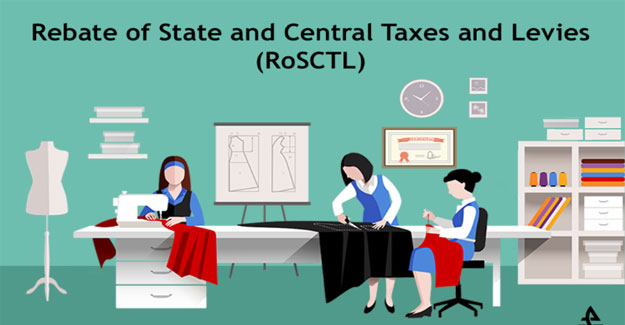
Textiles Ministry Notifies Extension Of RoSCTL Scheme
Eases ATUFS Norms Garment exporters will continue to get rebate on central and state taxes on their outward shipments as the government has decided to extend the RoSCTL scheme beyond March 2020 to enhance competitiveness of the labour-intensive textiles sector. The Ministry of Textiles has issued a notification extending the Scheme of Rebate of State and Central Taxes and Levies on Export of Garments and Made-ups (RoSCTL) which was in force up to March 31, 2020. The RoSCTL scheme provides rebate on all embedded taxes on exports. "The Government has decided to continue the said Scheme w.e.f. April 01, 2020 until such time that the RoSCTL Scheme is merged with Remission of Duties and Taxes on Exported Products (RoDTEP) Scheme without any change in Scheme guidelines and rates as notified (earlier)," said the notification. Finance Minister Nirmala Sitharaman had in September last year approved the RoDTEP to incentivise exporters at an estimated cost of Rs 50,000 crore to the exchequer. She had said RoDTEP will replace the existing incentive schemes and "will more than adequately incentivise exporters than the existing schemes put together." "The textile and apparel industry was of the opinion that government should not withdraw RoSCTL till RoDTEP comes into force effectively, as it will hurt the cost competitiveness of Indian apparels and made-ups in the international market where Indian products have to compete with cheap products of China, Bangladesh, Vietnam, etc," Confederation of Indian Textile Industries Chairman T Rajkumar said. Under the RoSCTL scheme, maximum rate of rebate for apparel is 6.05%, while for made-ups, this goes up to 8.2%. The made-ups segment comprises home textiles products such as bed linen, curtains, pillows and carpets. Exporters get rebate of state taxes and levies like VAT on fuel used in transportation, and embedded State Goods and Services Tax (SGST) paid on inputs such as pesticides and fertilisers. Central taxes and levies on which rebate is given include, central excise duty on fuel used in transportation, embedded CGST paid on inputs and embedded CGST and Compensation Cess on coal used in production of electricity. Meanwhile, the textiles ministry has also decided to ease norms under Amended Technology Upgradation Fund Scheme (ATUFS) during post lockdown period of the COVID-19 outbreak. The government provides credit linked capital investment subsidy with aim of 'Make in India' and 'Zero Defect and Zero Effect' in manufacturing. Under ATUFS, capital investment subsidy (CIS) is provided to various segments of the textiles sector, including garmenting and technical textiles. Garmenting and technical textiles segments can get 15 per% CIS, subject to an upper limit of Rs 30 crore.
Textile Excellence
If you wish to Subscribe to Textile Excellence Print Edition, kindly fill in the below form and we shall get back to you with details.













